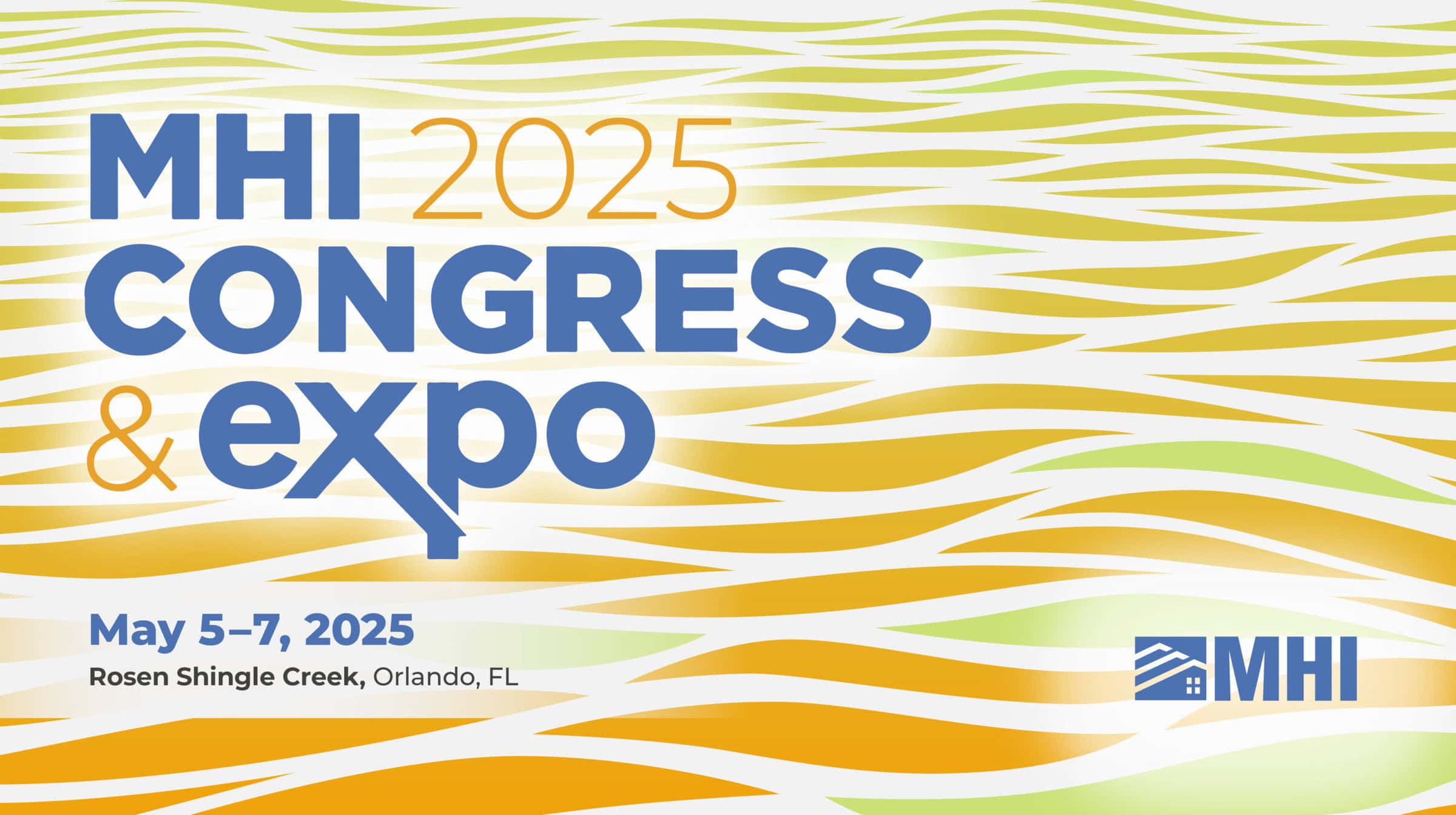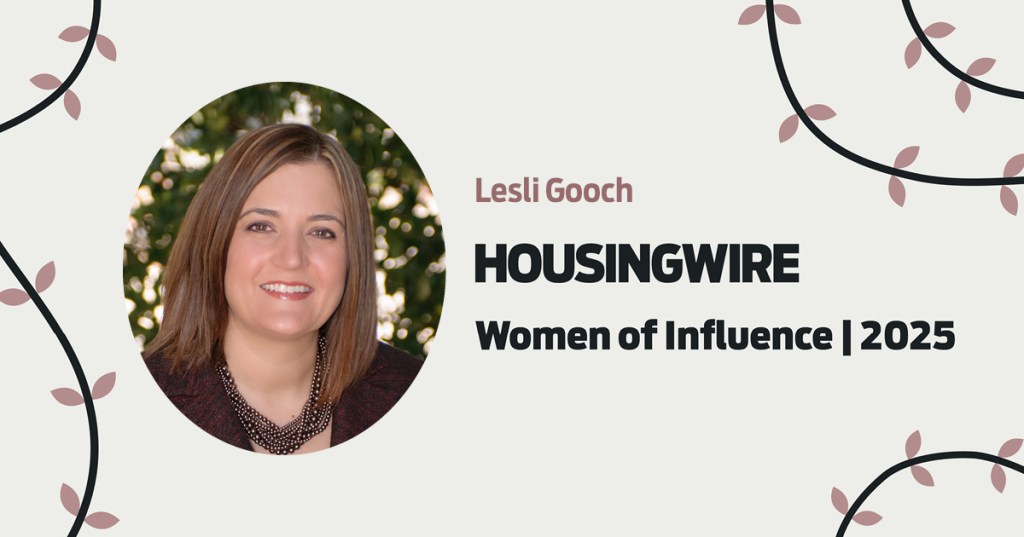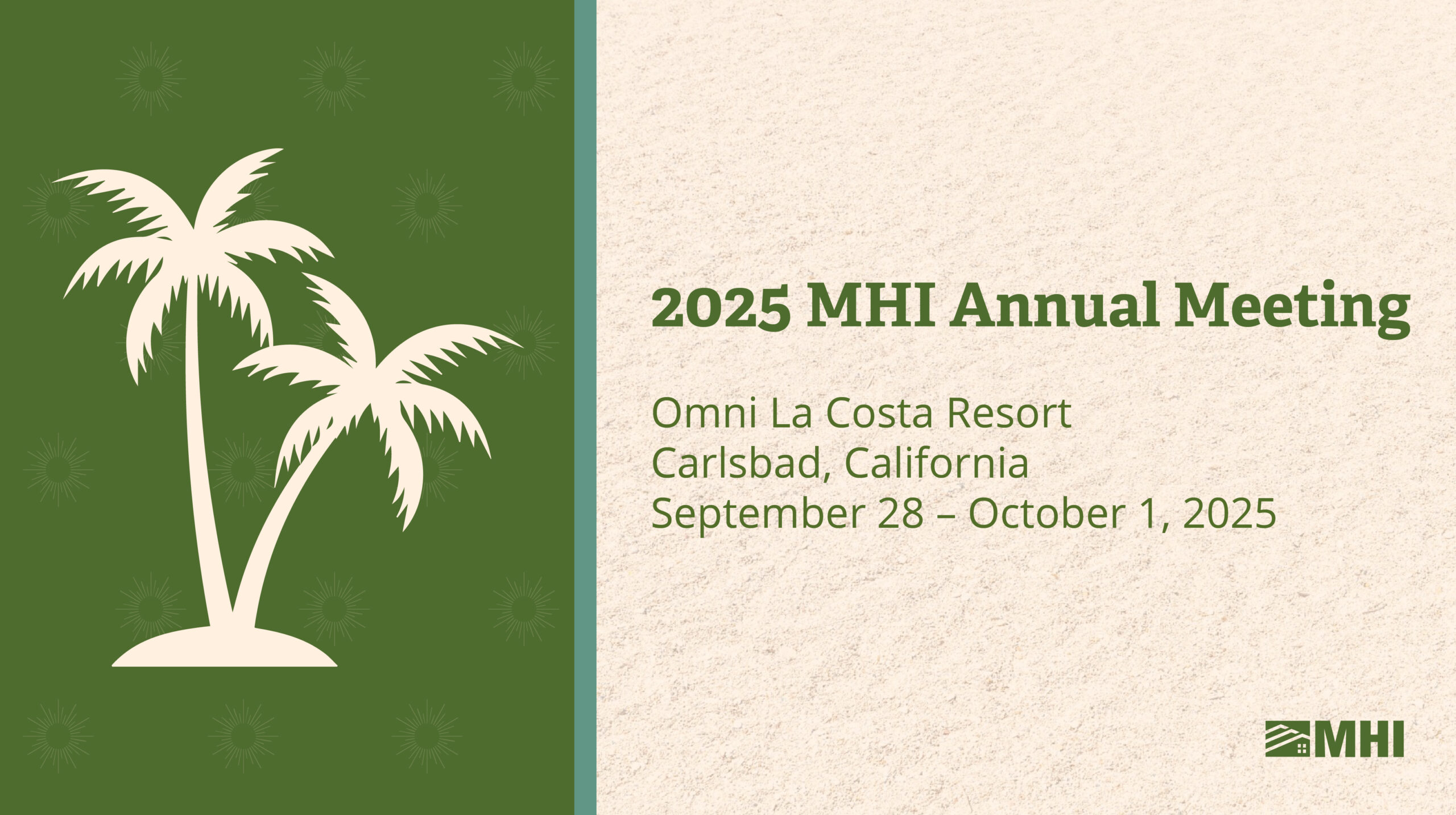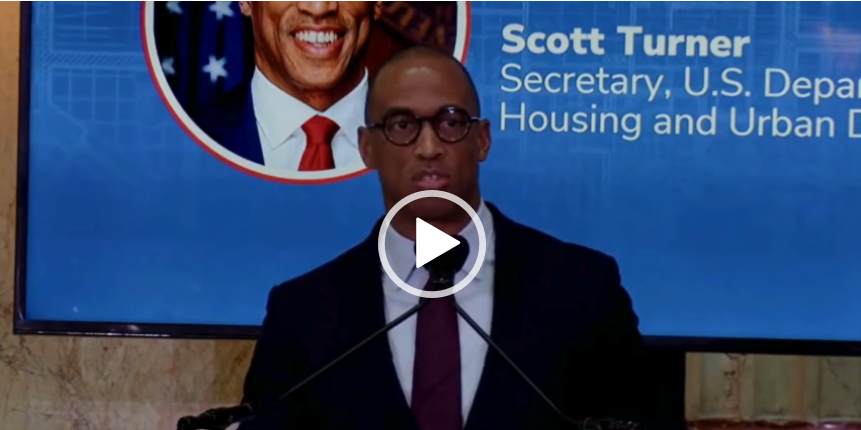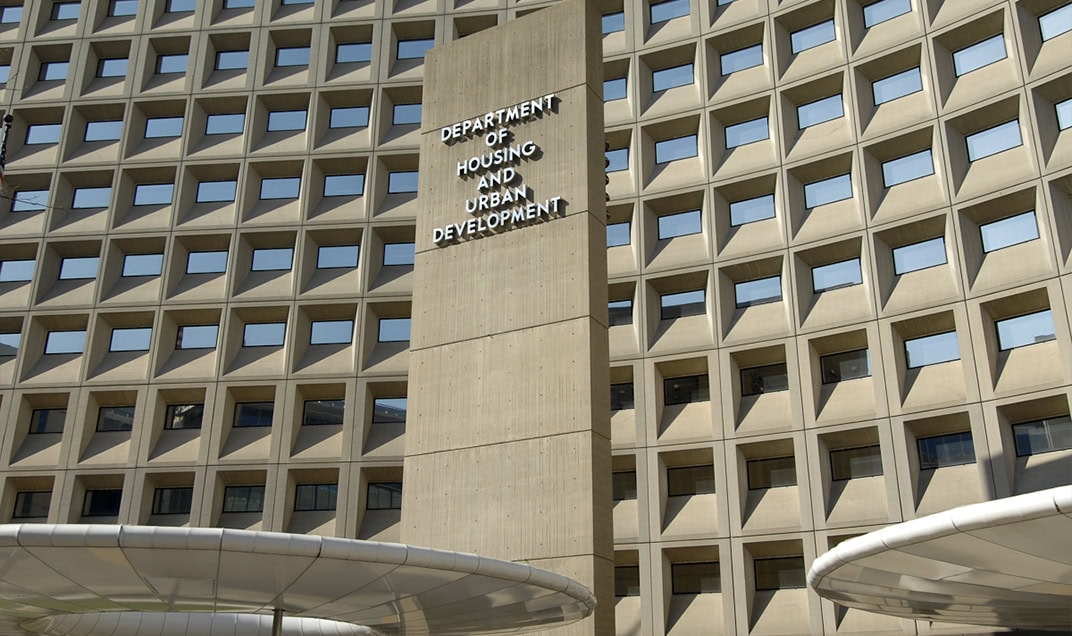What's New
MHI News
The latest news to give you a full perspective on the manufactured housing industry. From manufacturers to land-lease communities, retail to financial services, and suppliers to installers, we help you keep abreast of what’s happening in every aspect of the industry.
MHI CEO Named to HousingWire’s ‘Women of Influence’ List
MHI CEO Dr. Lesli Gooch was honored has one of HousingWire’s 2025 ‘Women of Influence.’ Under her leadership, MHI has made significant strides in advancing legislative priorities, including efforts to update federal housing regulations and construction codes to better reflect modern industry innovations.
2025 MHI Annual Meeting Registration Open
Registration is now live for the 2025 MHI Annual Meeting. Join fellow MHI members September 29 – October 1 at the Omni La Costa Resort in beautiful Carlsbad, CA for the largest gathering of MHI members.
Manufactured Housing Prominently Featured at Housing Supply Solutions Summit
HUD Secretary Scott Turner recognized manufactured housing during his remarks at national conference about housing supply.
MHCC Holds Special Meeting to Discuss Multi-Story Manufactured Homes Without Upper Chassis
On Tuesday, the Manufactured Housing Consensus Committee (MHCC) convened a special teleconference to review and comment on HUD’s proposed standards for multi-story manufactured homes that would not require a permanent chassis on upper floors.
MHI CEO Named to HousingWire’s ‘Women of Influence’ List
MHI CEO Dr. Lesli Gooch was honored has one of HousingWire’s 2025 ‘Women of Influence.’ Under her leadership, MHI has made significant strides in advancing legislative priorities, including efforts to update federal housing regulations and construction codes to better reflect modern industry innovations.
2025 MHI Annual Meeting Registration Open
Registration is now live for the 2025 MHI Annual Meeting. Join fellow MHI members September 29 – October 1 at the Omni La Costa Resort in beautiful Carlsbad, CA for the largest gathering of MHI members.
Newsletter
Sign up for MHI’s
Bi-Weekly Newsletter
Sign Up For our newsletter

Get In Touch
Media Contact
There’s a lot to know about today’s manufactured homes. Contact our media relations team to learn more.
Molly Boyle
Phone Number: 202-777-3668
Email Address: molly.boyle@fpmgi.com
